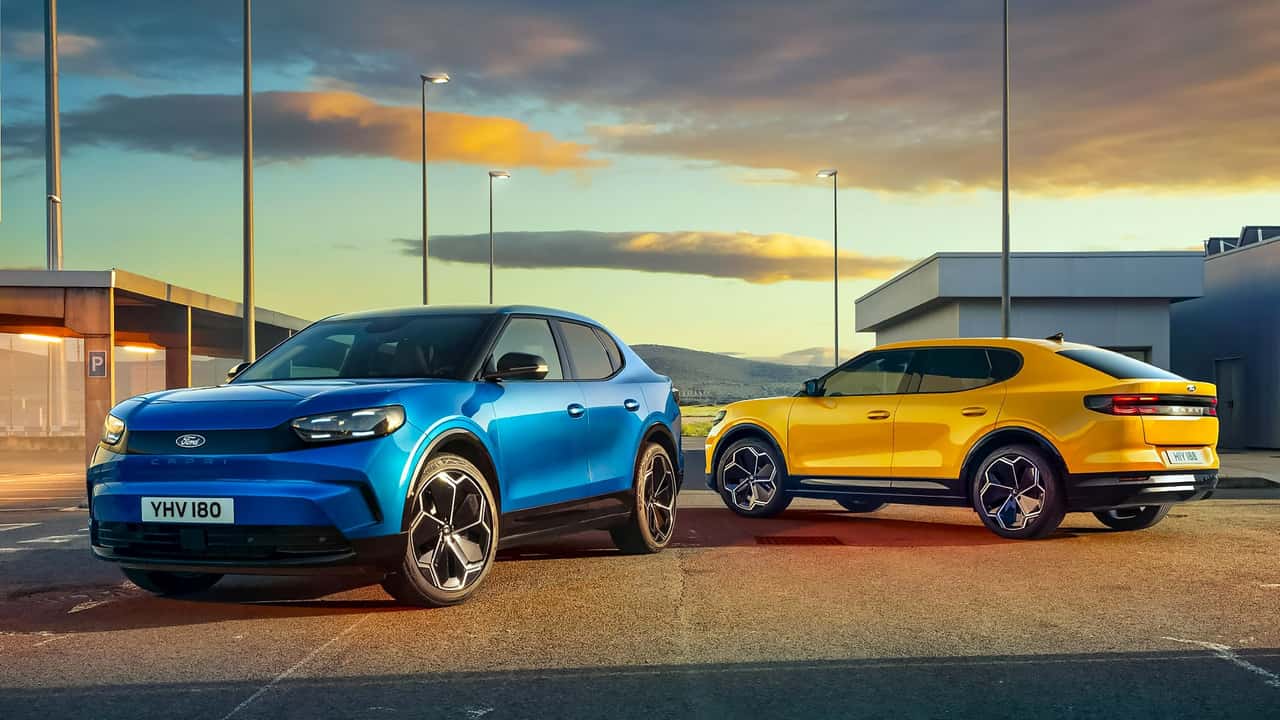A day after announcing it would spend billions to build gas-powered trucks at a North American plant once earmarked for electric vehicles, Ford’s European division also admitted it would rethink its plans to go all-EV there by the next decade.
Back in 2021, Ford pledged it would have an all-electric lineup of vehicles in Europe by 2030, but that plan has now changed to include more hybrid vehicles which are currently unknown.
“I think customers have voted, and they told us that [the plan] was too ambitious, is what I would say—and I think everyone in the industry has found that out the hard way,” Marin Gjaja, chief operating officer of Ford’s Model E division, told Autocar. “I would also say reality has a way of making you adjust your plans,” he added.
Get Fully Charged
Sales figures
In May, European sales of all-electric vehicles were down 11% compared to the same period last year, while plug-in hybrids saw a 10% decrease. Meanwhile, sales of traditional hybrids that don’t have a charge plug went up 15%.
The executive cited the faltering adoption of EVs—which has been slower as of late in Europe than in the U.S.—coupled with high battery costs and disappearing government incentives as the main reasons for the decision. “We don’t see that going all-electric by 2030 is a good choice for our business or, especially, for our customers,” Gjaja added.
It’s a story we’ve been hearing a lot lately.
The American-based automaker follows in the footsteps of Volkswagen, Kia, Genesis and General Motors, all of which are planning on launching more hybrid and plug-in hybrid models in the years to come in place of ambitious electric-only plans. Some, like Volkswagen, have cited the same EV demand slowdown, while others, like General Motors, said they’re going down the hybrid route to make it easier to comply with upcoming emissions regulations.
A new European Union law says that car manufacturers will no longer be allowed to sell new vehicles that have tailpipe emissions from 2035, essentially restricting the market to EVs only. However, one of the major political groups in the European Parliament intends to water down those rules to “allow for the use of alternative zero-emissions fuels” beyond 2035, which would include biomethane, hydrogen, ammonia, biofuels and e-fuels like that developed by Porsche.

The Capri is Ford’s latest EV made for the European market
Currently, Ford sells just two EVs in Europe, the Explorer EV, which has nothing in common with the namesake model sold in the United States, and the Mustang Mach-E. The new Ford Capri will join them soon, and battery-powered versions of the Puma crossover and Tourneo Courier van are also in the works.
Come mid-2025, the Focus hatchback will be retired, leaving only the Tourneo, Mustang, Puma and Kuga as the only combustion-powered Ford models on sale in Europe. Gjaja said that a new “multi-energy” platform is under development for European cars–in other words, a hybrid setup that might first make its way under the hood of the next generation Kuga crossover which is due in 2027, although this has not been confirmed.
In a surprising turn of events, Ford has recently announced that it will be backing off its previously stated goal of transitioning to an all-electric vehicle (EV) lineup in Europe by 2030. The decision comes as a result of the company deeming the initial strategy as too ambitious and potentially unrealistic.
Ford’s original plan to go all-electric by 2030 was announced last year as part of the company’s broader commitment to reducing its carbon footprint and transitioning to more sustainable forms of transportation. The move was praised by environmental advocates and industry analysts alike, who saw it as a bold step forward in the fight against climate change.
However, it appears that Ford has had a change of heart. In a recent statement, the company’s CEO, Jim Farley, explained that the decision to walk back the all-EV strategy was driven by a number of factors, including concerns about the availability of charging infrastructure, consumer demand, and the competitive landscape in Europe.
Farley acknowledged that while the company remains committed to electrification, it has become clear that a more balanced approach will be necessary in order to meet the needs of European consumers and remain competitive in the market. As such, Ford will now focus on offering a mix of electric, hybrid, and internal combustion engine vehicles in its European lineup, with the goal of achieving a significant reduction in CO2 emissions by 2030.
The decision to shift away from an EV-only strategy may come as a disappointment to some, particularly those who have been following Ford’s progress in the electric vehicle space. However, it is important to remember that the transition to electrification is a complex and multifaceted process, and there are many challenges that automakers must overcome in order to make it successful.
By taking a more measured and pragmatic approach, Ford hopes to strike a balance between its environmental goals and its business objectives. It remains to be seen how this decision will be received by the public and industry stakeholders, but one thing is certain: the automotive industry is in the midst of a major transformation, and companies like Ford must be agile and flexible in order to adapt to changing market conditions and consumer preferences.

